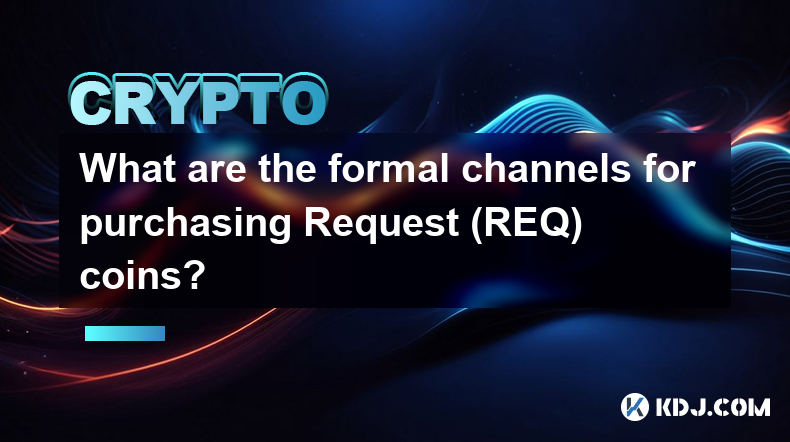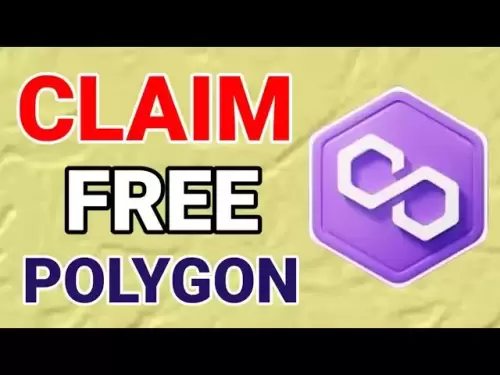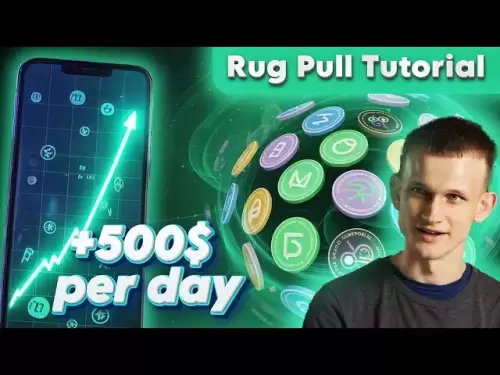-
 Bitcoin
Bitcoin $106,754.6083
1.33% -
 Ethereum
Ethereum $2,625.8249
3.80% -
 Tether USDt
Tether USDt $1.0001
-0.03% -
 XRP
XRP $2.1891
1.67% -
 BNB
BNB $654.5220
0.66% -
 Solana
Solana $156.9428
7.28% -
 USDC
USDC $0.9998
0.00% -
 Dogecoin
Dogecoin $0.1780
1.14% -
 TRON
TRON $0.2706
-0.16% -
 Cardano
Cardano $0.6470
2.77% -
 Hyperliquid
Hyperliquid $44.6467
10.24% -
 Sui
Sui $3.1128
3.86% -
 Bitcoin Cash
Bitcoin Cash $455.7646
3.00% -
 Chainlink
Chainlink $13.6858
4.08% -
 UNUS SED LEO
UNUS SED LEO $9.2682
0.21% -
 Avalanche
Avalanche $19.7433
3.79% -
 Stellar
Stellar $0.2616
1.64% -
 Toncoin
Toncoin $3.0222
2.19% -
 Shiba Inu
Shiba Inu $0.0...01220
1.49% -
 Hedera
Hedera $0.1580
2.75% -
 Litecoin
Litecoin $87.4964
2.29% -
 Polkadot
Polkadot $3.8958
3.05% -
 Ethena USDe
Ethena USDe $1.0000
-0.04% -
 Monero
Monero $317.2263
0.26% -
 Bitget Token
Bitget Token $4.5985
1.68% -
 Dai
Dai $0.9999
0.00% -
 Pepe
Pepe $0.0...01140
2.44% -
 Uniswap
Uniswap $7.6065
5.29% -
 Pi
Pi $0.6042
-2.00% -
 Aave
Aave $289.6343
6.02%
What are the formal channels for purchasing Request (REQ) coins?
Formal channels for purchasing Request (REQ) coins include centralized exchanges such as Binance, Coinbase, Kraken, Huobi Global, and KuCoin, as well as decentralized exchanges and other platforms like brokerage firms, cryptocurrency ATMs, and peer-to-peer trading.
Dec 24, 2024 at 09:03 am

Formal Channels for Purchasing Request (REQ) Coins
Request (REQ) coins are available for purchase through various formal channels, ensuring secure and reliable transactions.
Centralized Exchanges
Centralized exchanges are reputable platforms that facilitate the trading of cryptocurrencies, including REQ. These exchanges serve as intermediaries between buyers and sellers, providing a secure and regulated environment for trading.
- Binance: Binance is the world's largest cryptocurrency exchange by trading volume. It offers a wide range of cryptocurrencies, including REQ, and supports multiple payment methods.
- Coinbase: Coinbase is a popular and user-friendly exchange that provides an easy way to buy and sell cryptocurrencies. It supports a limited number of cryptocurrencies, including REQ, and charges transaction fees.
- Kraken: Kraken is a long-established exchange known for its security and support for a wide range of cryptocurrencies. It offers spot and margin trading options for REQ, with competitive maker/taker fees.
- Huobi Global: Huobi Global is a leading exchange with a significant presence in Asia. It supports a wide range of cryptocurrencies, including REQ, and offers multiple trading options.
- KuCoin: KuCoin is a user-friendly exchange that offers a wide range of cryptocurrencies, including REQ. It supports multiple payment options and provides various trading features.
Decentralized Exchanges (DEXs)
Decentralized exchanges (DEXs) offer a peer-to-peer marketplace for trading cryptocurrencies without the need for intermediaries. These exchanges operate on blockchain technology and provide greater anonymity and control over transactions.
- Uniswap: Uniswap is an automated market maker (AMM) that facilitates the trading of ERC-20 tokens, including REQ. It provides a decentralized trading experience with no KYC requirements or counterparty risk.
- SushiSwap: SushiSwap is another AMM that supports the trading of REQ. It offers additional features, such as yield farming and governance tokens.
- PancakeSwap: PancakeSwap is an AMM specifically designed for trading on the Binance Smart Chain (BSC). It offers low transaction fees and supports a range of BEP-20 tokens, includingREQ.
- dYdX: dYdX is a decentralized exchange that specializes in perpetual futures trading. It offers high leverage and low fees for trading REQ perpetual contracts.
- Bisq: Bisq is a decentralized exchange that facilitates peer-to-peer trading of cryptocurrencies without the need for KYC or identity verification. It provides greater privacy and anonymity for users.
Other Formal Channels
In addition to exchanges, there are other formal channels for purchasing REQ coins:
- Brokerage Firms: Some brokerage firms offer cryptocurrency trading services, allowing clients to buy and sell REQ coins through their platforms.
- Cryptocurrency ATMs: Cryptocurrency ATMs are physical machines that allow users to buy and sell cryptocurrencies, including REQ, using cash.
- Peer-to-Peer (P2P) Trading: P2P platforms connect buyers and sellers of cryptocurrencies without the need for intermediaries. Users can directly trade with each other, setting their own prices and terms.
FAQs
Q: What is Request (REQ)?
A: Request is an Ethereum-based platform that enables the creation of decentralized payment requests and invoicing solutions.
Q: What is the purpose of REQ coins?
A: REQ coins are used to pay transaction fees on the Request network and incentivize nodes to process payment requests.
Q: Is it safe to buy REQ coins through formal channels?
A: Yes, reputable exchanges and other formal channels provide secure and reliable platforms for purchasing REQ coins. It is important to choose trusted platforms and follow best practices for account security.
Disclaimer:info@kdj.com
The information provided is not trading advice. kdj.com does not assume any responsibility for any investments made based on the information provided in this article. Cryptocurrencies are highly volatile and it is highly recommended that you invest with caution after thorough research!
If you believe that the content used on this website infringes your copyright, please contact us immediately (info@kdj.com) and we will delete it promptly.
- Ethereum Price Expectations: Stuck in Neutral or Ready to Rumble?
- 2025-06-20 02:45:13
- Bitcoin's Rally Stalls? AI Tokens Like RUVI & OZAK Steal the Show
- 2025-06-20 02:45:13
- Story Crypto Price Down Today: What's Going On?
- 2025-06-20 02:50:12
- Little Pepe, Meme Coins, and Shiba Inu: What's the Buzz in the Crypto Jungle?
- 2025-06-20 03:10:12
- Troller Cat: The Meme Coin Rickrolling Its Way to ROI Riches
- 2025-06-20 03:25:12
- DePIN, Shared Infrastructure, New Era: Building the Future, Together
- 2025-06-20 02:25:12
Related knowledge

How to customize USDT TRC20 mining fees? Flexible adjustment tutorial
Jun 13,2025 at 01:42am
Understanding USDT TRC20 Mining FeesMining fees on the TRON (TRC20) network are essential for processing transactions. Unlike Bitcoin or Ethereum, where miners directly validate transactions, TRON uses a delegated proof-of-stake (DPoS) mechanism. However, users still need to pay bandwidth and energy fees, which are collectively referred to as 'mining fe...

USDT TRC20 transaction is stuck? Solution summary
Jun 14,2025 at 11:15pm
Understanding USDT TRC20 TransactionsWhen users mention that a USDT TRC20 transaction is stuck, they typically refer to a situation where the transfer of Tether (USDT) on the TRON blockchain has not been confirmed for an extended period. This issue may arise due to various reasons such as network congestion, insufficient transaction fees, or wallet-rela...

How to cancel USDT TRC20 unconfirmed transactions? Operation guide
Jun 13,2025 at 11:01pm
Understanding USDT TRC20 Unconfirmed TransactionsWhen dealing with USDT TRC20 transactions, it’s crucial to understand what an unconfirmed transaction means. An unconfirmed transaction is one that has been broadcasted to the blockchain network but hasn’t yet been included in a block. This typically occurs due to low transaction fees or network congestio...

What to do if USDT TRC20 transfers are congested? Speed up trading skills
Jun 13,2025 at 09:56am
Understanding USDT TRC20 Transfer CongestionWhen transferring USDT TRC20, users may occasionally experience delays or congestion. This typically occurs due to network overload on the TRON blockchain, which hosts the TRC20 version of Tether. Unlike the ERC20 variant (which runs on Ethereum), TRC20 transactions are generally faster and cheaper, but during...

The relationship between USDT TRC20 and TRON chain: technical background analysis
Jun 12,2025 at 01:28pm
What is USDT TRC20?USDT TRC20 refers to the Tether (USDT) token issued on the TRON blockchain using the TRC-20 standard. Unlike the more commonly known ERC-20 version of USDT (which runs on Ethereum), the TRC-20 variant leverages the TRON network's infrastructure for faster and cheaper transactions. The emergence of this version came as part of Tether’s...

How to monitor large USDT TRC20 transfers? Tracking tool recommendation
Jun 12,2025 at 06:49pm
Understanding USDT TRC20 TransfersTether (USDT) is one of the most widely used stablecoins in the cryptocurrency ecosystem. It exists on multiple blockchains, including TRON (TRC20). The TRC20 version of USDT operates on the TRON network and offers faster transaction speeds and lower fees compared to its ERC-20 counterpart on Ethereum. When discussing l...

How to customize USDT TRC20 mining fees? Flexible adjustment tutorial
Jun 13,2025 at 01:42am
Understanding USDT TRC20 Mining FeesMining fees on the TRON (TRC20) network are essential for processing transactions. Unlike Bitcoin or Ethereum, where miners directly validate transactions, TRON uses a delegated proof-of-stake (DPoS) mechanism. However, users still need to pay bandwidth and energy fees, which are collectively referred to as 'mining fe...

USDT TRC20 transaction is stuck? Solution summary
Jun 14,2025 at 11:15pm
Understanding USDT TRC20 TransactionsWhen users mention that a USDT TRC20 transaction is stuck, they typically refer to a situation where the transfer of Tether (USDT) on the TRON blockchain has not been confirmed for an extended period. This issue may arise due to various reasons such as network congestion, insufficient transaction fees, or wallet-rela...

How to cancel USDT TRC20 unconfirmed transactions? Operation guide
Jun 13,2025 at 11:01pm
Understanding USDT TRC20 Unconfirmed TransactionsWhen dealing with USDT TRC20 transactions, it’s crucial to understand what an unconfirmed transaction means. An unconfirmed transaction is one that has been broadcasted to the blockchain network but hasn’t yet been included in a block. This typically occurs due to low transaction fees or network congestio...

What to do if USDT TRC20 transfers are congested? Speed up trading skills
Jun 13,2025 at 09:56am
Understanding USDT TRC20 Transfer CongestionWhen transferring USDT TRC20, users may occasionally experience delays or congestion. This typically occurs due to network overload on the TRON blockchain, which hosts the TRC20 version of Tether. Unlike the ERC20 variant (which runs on Ethereum), TRC20 transactions are generally faster and cheaper, but during...

The relationship between USDT TRC20 and TRON chain: technical background analysis
Jun 12,2025 at 01:28pm
What is USDT TRC20?USDT TRC20 refers to the Tether (USDT) token issued on the TRON blockchain using the TRC-20 standard. Unlike the more commonly known ERC-20 version of USDT (which runs on Ethereum), the TRC-20 variant leverages the TRON network's infrastructure for faster and cheaper transactions. The emergence of this version came as part of Tether’s...

How to monitor large USDT TRC20 transfers? Tracking tool recommendation
Jun 12,2025 at 06:49pm
Understanding USDT TRC20 TransfersTether (USDT) is one of the most widely used stablecoins in the cryptocurrency ecosystem. It exists on multiple blockchains, including TRON (TRC20). The TRC20 version of USDT operates on the TRON network and offers faster transaction speeds and lower fees compared to its ERC-20 counterpart on Ethereum. When discussing l...
See all articles

























































































